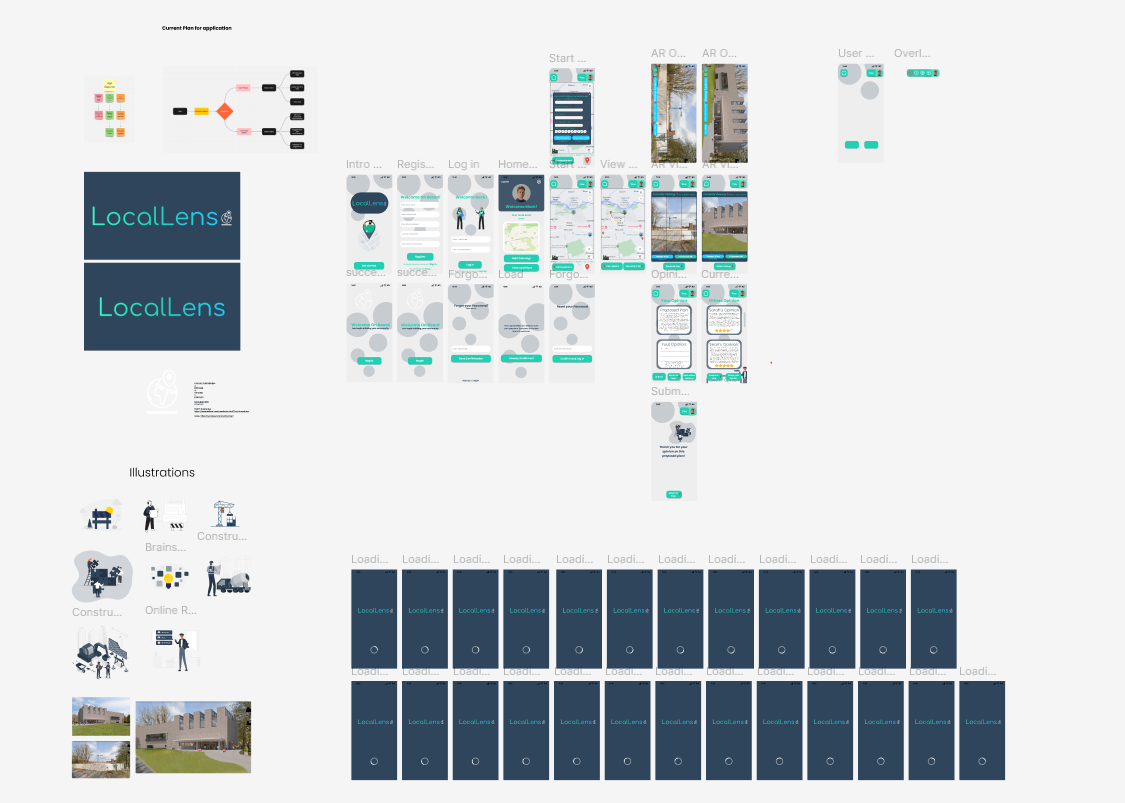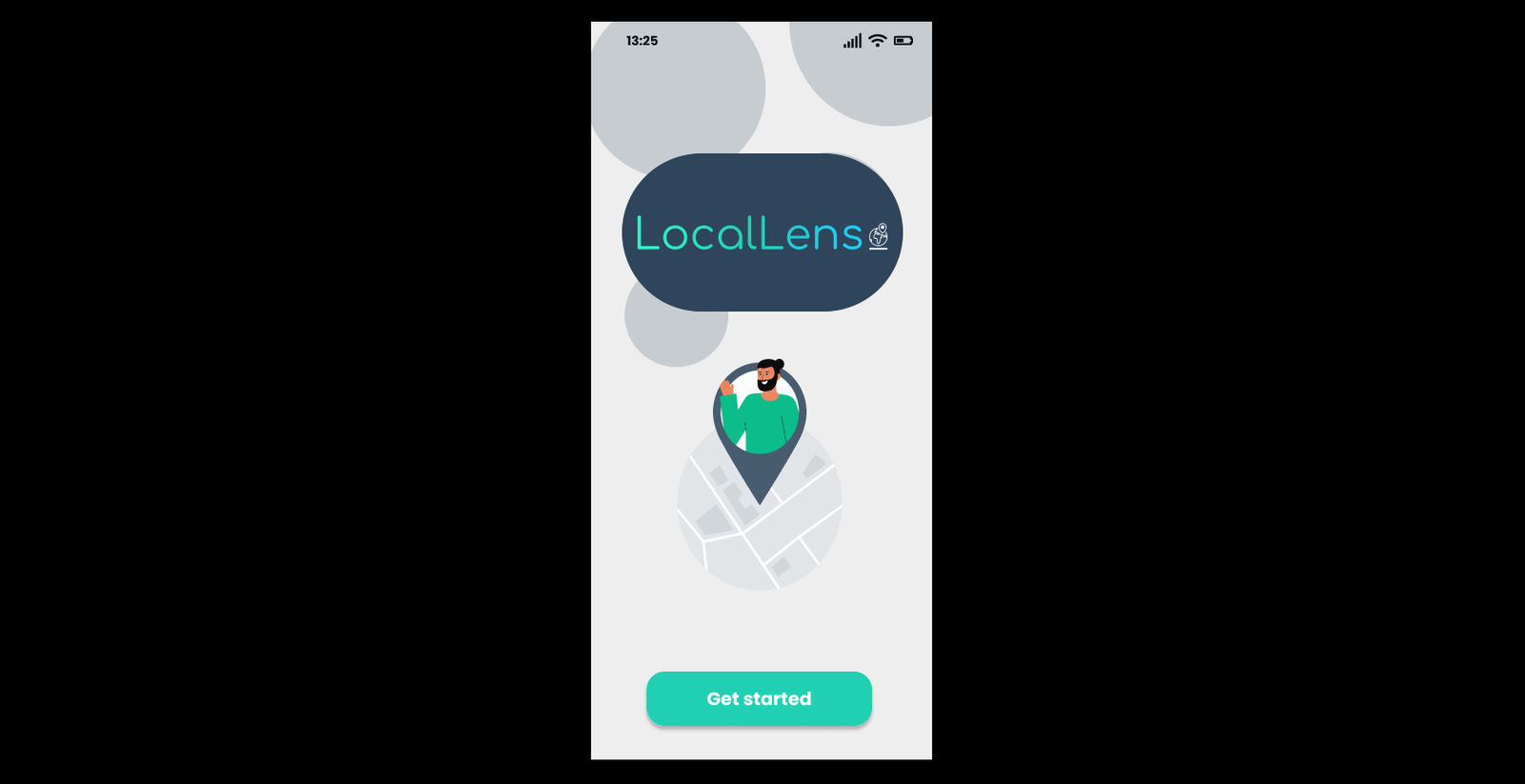LocalLens
A mobile based project created with the intention of supporting community development.
The app allows residents to submit ideas, prioritize needs, and visualize proposed changes using interactive maps and AR technology, making complex planning concepts accessible and engaging.

Research
The development of LocalLens was grounded in extensive research into urban planning and community development, focusing on the challenges of engaging diverse stakeholders in decision making processes.
I explored the use of digital tools and participatory design methods, drawing inspiration from studies highlighting how information technology can enhance public participation in urban planning.
This research informed the creation of a collaborative board game, "Community Builder," which simulated real-world challenges in community planning and encouraged players to negotiate, prioritize, and reflect on decisions affecting their community’s live-ability

Vision
The vision for this project is to transform the Braw Chocolate & Bakery website into a modern, user-centric platform that streamlines direct online sales and elevates the overall customer experience.
The goal is to make the site not only a seamless e-commerce destination but also an engaging online catalogue that showcases the brand’s unique offerings.
By focusing on usability, accessibility, and compelling content, the project aims to increase customer engagement, simplify the ordering process, and foster long-term loyalty
The Affinity suite was used as the primary software for the design of this project, alongside Figma and Canva.

Design
The design of LocalLens was shaped by insights from collaborative play sessions with a self designed Community Builder board game, where players navigated real-world scenarios in community planning and decision-making.
These sessions highlighted the importance of teamwork, open feedback, and visual aids in reaching consensus and understanding the impact of choices on community development.
Drawing from these lessons, LocalLens features a clean, user-friendly interface that encourages participation and discussion among users.
This design approach ensures that LocalLens not only supports effective collaboration but also empowers communities to take an active role in shaping their local environment.

Figma Board Design
The Figma board design for LocalLens visually maps out the user experience and interface of the app, focusing on clarity, usability, and community engagement.
Using Figma, the team created detailed layouts for features like interactive maps, feedback tools, and AR visualizations, ensuring that each element supports collaborative community planning.
The board also helped organize user flows and refine design decisions based on feedback from real-world board game sessions, making the digital experience intuitive and accessible.
This collaborative approach allowed for rapid iteration and alignment among team members, resulting in a polished and user-friendly design

Figma Prototype
The Figma prototype for LocalLens brings the app’s vision to life with a interactive, high fidelity design.
It allows users and stakeholders to explore the main user flows such as submitting feedback, navigating maps, and viewing AR concepts by clicking through connected screens that simulate the real app experience.
The prototype highlights LocalLens’s clean interface and intuitive navigation, making it easy to visualize how community members would interact with the platform.
This model was essential for gathering feedback, refining features, and ensuring the design met user needs before development began